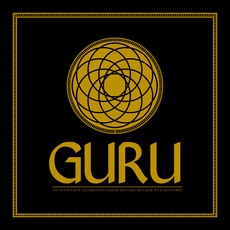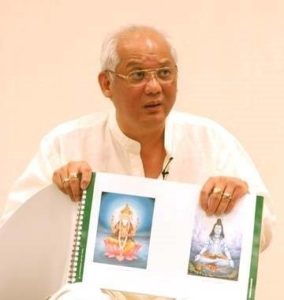The Guru is usually a term that connotes someone who is a teacher, guide, expert, or master. The word is also sometimes used to denote a person with deep knowledge of a field – such as a “Marketing Guru” or “Advertising Guru” and others. However, in the East, it usually refers to “Spiritual Teacher” and is prevalent in several cultures, including Hinduism, Buddhism, Jainism, and Sikhism. The tradition of reverence for the guru in Hindu scriptures is apparent in the Shvetashvatara Upanishad (6.23), which equates the need for reverence and devotion for the Guru to be the same as for God. The importance of the Spiritual Teacher has also been emphasized in other traditions such as Chinese (Sifu), Japanese (Sensei), and Jewish (Rabi).

So why is the Guru so important? A deeper analysis of this question may need a volume of explanation. In this article, we will provide a general overview of the need and importance of a Guru.
However, note that not everyone called “Guru” can be trusted. One should not accept things blindly. Unfortunately, people who follow things blindly are always misled, taken advantage of, and hurt. As MCKS advised, “Remember, anybody can say anything! Anybody can write anything! Practice discernment or Intelligent Evaluation.”
Why do we need a Guru?
According to Master Choa Kok Sui, “Guru” comes from the word Zoroaster, which means Teacher from the Sun. In the Advayataraka Upanishad (14-18, verse 5), the Guru means the dispeller of darkness (“gu” meaning darkness and “ru” the dispeller). In esoteric teachings, darkness is sometimes used as a symbol of ignorance. It is said that ignorance can be dispelled by shedding light (since darkness, by its very definition, is the absence of light). Symbolically speaking, the Guru symbolizes the Light. In this case, the Teacher is often compared to a mini-sun, who always radiates light.
In Eastern thought, having a Guru or Spiritual Teacher is considered a priceless gift. According to Ramana Maharishi, “The Guru is absolutely necessary. The Upanishads say that no one but a Guru can take a man out of the jungle of intellect and sense perceptions. So there must be Guru.” According to Saint Kabir, the Guru is greater than God simply because knowledge or experience of God is impossible without the Guru.
So why is the Guru so important in the Spiritual Traditions? There are four main reasons:
1. Guidance: One needs a Guru because entering the spiritual path is accompanied by many challenges; in this case, the Guru acts as a spiritual guide who can show the way and protect disciples from falling. According to Master Choa Kok Sui, “the Spiritual Path is more complicated than the Amazon. The Guru has already been through the “forest.” Follow the guidance of the Teacher to avoid getting hurt.”
2. Teachings: The Guru is often compared to a mini-sun who always radiates light. This light involves the transference of energy and teachings, which help the disciple understand and see the higher truth. This light makes the teachings simple and clear. According to MCKS, “Mysterious subjects become easy to understand due to the transmission of the teachings to the students. Transmission is both received internally and externally.”
3. Spiritual Energy Conductor: To understand what this means, we must first look at the principles of energy. When you do serious spiritual practice then, you pull down a lot of energy. It is written in the Bible that Moses asked God to show him his face, and God said, “No one can see my face and live.” What this really means is that God’s energy (and other higher spiritual energies) is extremely potent and, if poured into one’s body fully, may damage or destroy the body since the body would not be able to handle the intensity of the energy. This can be explained with the help of physics. If you connect a simple wire to 220 electricity voltage, the wire can handle the intensity, so electricity passes through it easily. Now, if you connect the same wire to the generating station with a voltage of 13800 or more, the wire will instantly get burnt! So to be able to use electricity in residential areas, there are certain sub-stations with transformers designed to step down the voltage so that when it reaches our homes, the voltage is suitable for consumption. According to MCKS, “The role of the Guru is like that of a transformer. The Guru brings down High Spiritual Energy to the level your subtle bodies can handle.” It is the Guru who makes Spiritual Practice safe.
4. Parent: The Guru’s function is similar to a parent’s. Parents look after their young children, caring for them, providing for them, and protecting them. Similarly, a Guru looks after the soul of the disciple or chela. This is one of the reasons that in ancient traditions, the Guru gives the disciple a name (once he or she is accepted as a student). The Chinese name Choa Kok Sui (“fortune of the world”) was given to MCKS by his Teacher, Mahaguruji Mei Ling. While the relationship with a parent is for but a lifetime, the relationship with a Guru and disciple is supposed to be permanent. While a soul may have many teachers and guides, only one Permanent Spiritual Teacher (or Sat Guru) exists. The relationship between the disciple and the student lasts eons upon eons.
There are several concrete reasons for the need for having a high degree of reverence and sense of gratitude in disciples for their Guru. Therefore, reverence to the Guru (and above all towards God) is a key component of practicing Arhatic Yoga.
It is said that the debt that a disciple owes to the Guru cannot be repaid. Therefore, in ancient India, for instance, if you desired to learn something from a Guru, you would have to go and live in the Gurukul and work for several years before you could hope to learn anything. This is also a reason that in India, during festivals such as Guru Purnima, students give gifts to teachers as a token of their gratitude.
The Role of the Guru in Spiritual Practice
So, do all spiritual aspirants need a Guru? In general, yes. It is possible to spiritually progress without having a Guru, but the entire process will be slow, difficult, and painful. Even highly evolved human beings (such as Arhat) need a Guru to progress. Exceptions to the rule are beings who have achieved complete God-realization. In different spiritual traditions, these are highly exalted beings, called Buddhas, Christs, Bodhisattvas, and Avatars.
We have elaborated discussions and practices in the Arhatic Yoga Preparatory Level workshops, to understand Guru and his role in our lives. The books and workshops designed by Master Choa Kok Sui are truly enlightening and might help you clarify the concepts and clear the doubts that you might have.
We hope that you liked this article and have found this helpful. You may also read related articles that discuss about Guru and the importance of Spiritual Conductivity.


Good